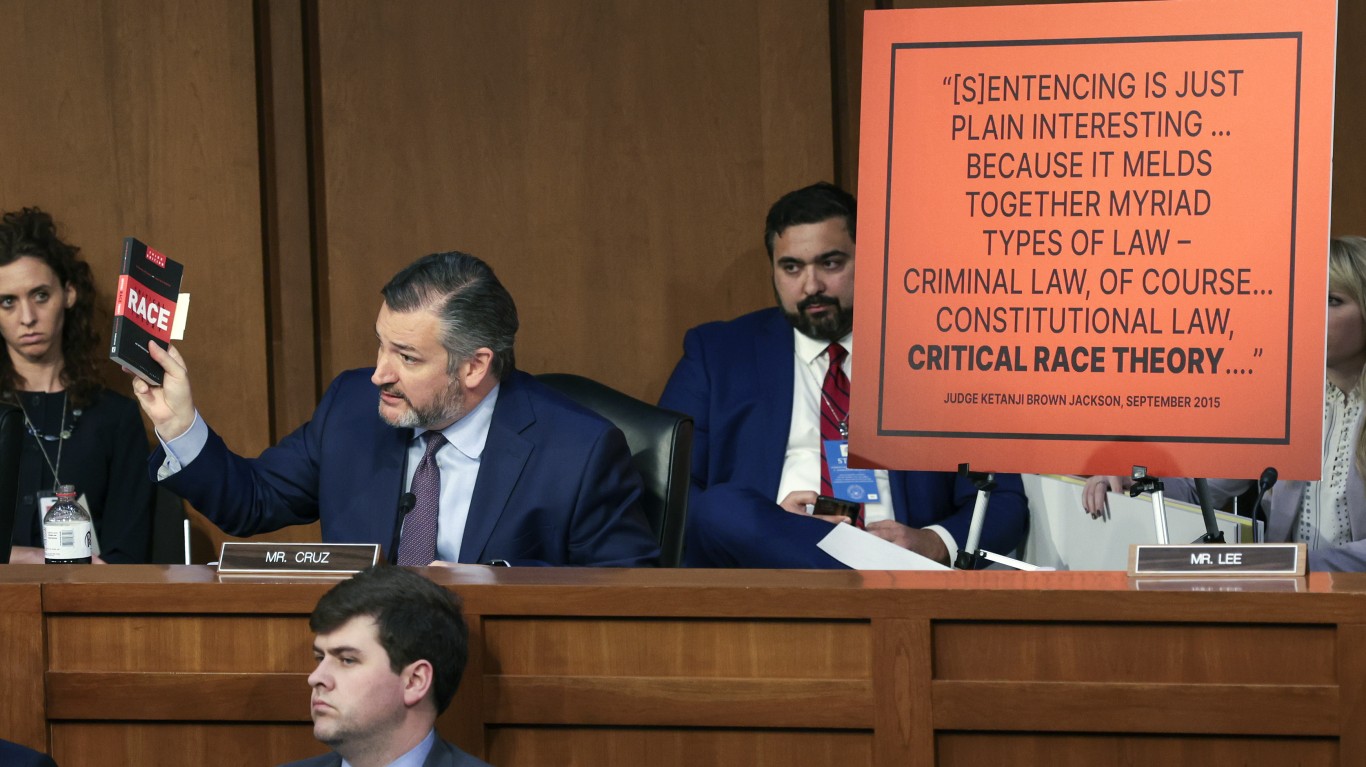
The 118th Congress has been historically unproductive and devoid of bipartisanship or major legislation. Since the Republican party won back the House in the 2022 midterms, little has been accomplished. While some Republicans place a premium on bipartisanship, others steadfastly refuse to work with the other side. In certain parts of the country, compromise with the Democrats is a tough sell.
Thanks to research from the Lugar Center and McCourt School of Public Policy, it’s possible to track the most and least bipartisan members of Congress. This article will examine the Republicans least inclined to reach across the aisle.
Why This Matters

American voters will decide the presidency and who controls Congress this November. One party may well win the government trifecta but it is more likely that one party will control the House, the other the Senate. If any meaningful legislation is to be passed by the 119th Congress, cooperation and bipartisanship will be needed so it is important to know who the potential deal makers and deal breakers are.
A Note on Leadership
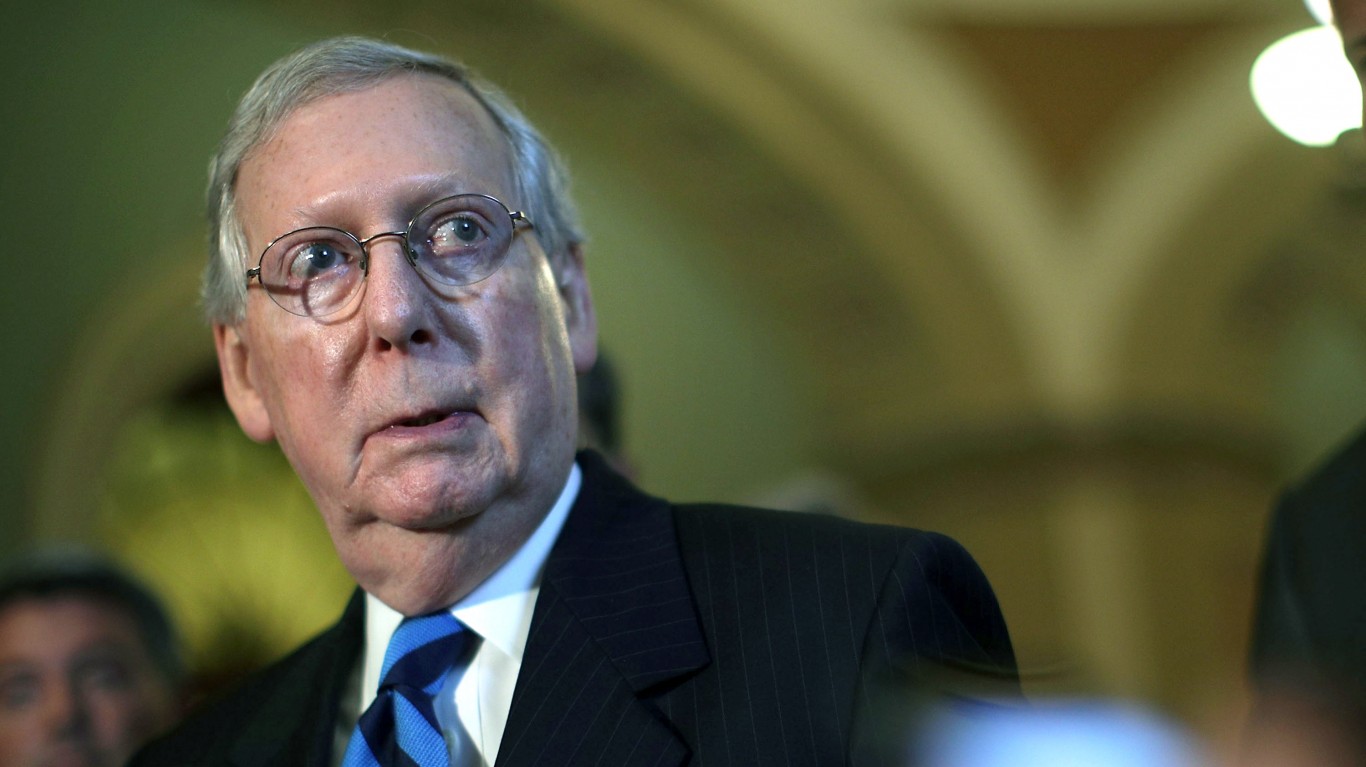
The bipartisan index does not track either the majority or minority leader in the Senate so Mitch McConnell and Chuck Schumer are not included in the rankings because party leadership operates quite differently from regular members. It also does not include Senators with less than six months of service so Ben Sasse, who resigned in January 2023, is not included.
10 – Pete Ricketts (Nebraska)
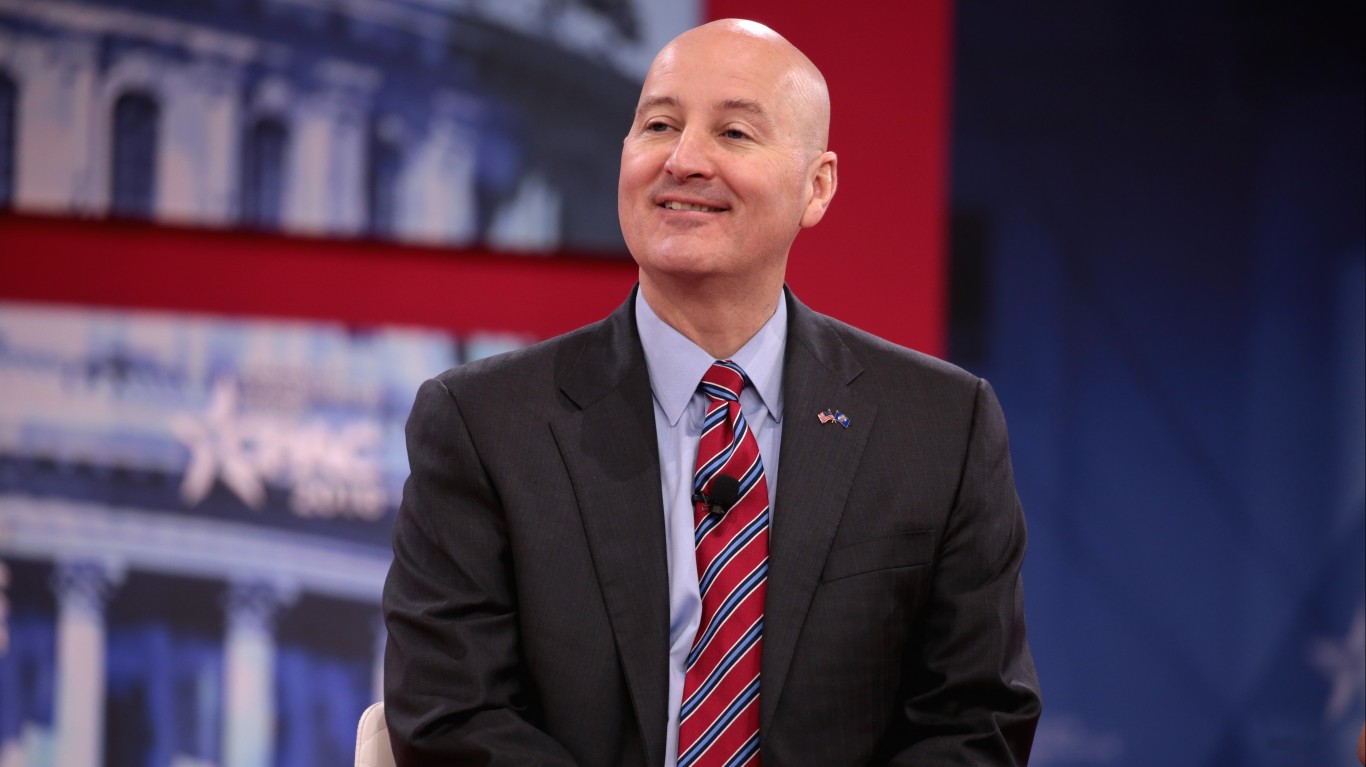
Assumed office: 2023
Bipartisan ranking: 85
Pete Ricketts was appointed to the Senate to replace Ben Sasse shortly after Ricketts’ term as governor of Nebraska ended. Some state Republicans expressed concern about the optics of new governor Jim Pillen appointing a close ally who donated $100,000 to his election campaign but Republican Senate leadership welcomed a reliable conservative vote.
Given his fiscal conservativism and hardline stances on abortion and gun control, there’s not an awful lot of scope for cross-party cooperation. At least domestically. As a strong Israel supporter, he may find more bipartisan opportunities with moderate Democrats in the next legislative session.
He will contest a special election in November to see out Sasse’s term which will be little more than a formality.
9 – Bill Hagerty (Tennessee)

Assumed office: 2021
Bipartisan ranking: 87
A close ally of Donald Trump, Bill Hagerty easily won election to the Senate in 2020 with 62% of the vote. Hagerty gained notoriety during fought negotiations over the Biden administration’s landmark bipartisan infrastructure bill as he dragged out the process. While the former president expressed his approval, other Republicans were exasperated by the waste of time.
8 – Ted Cruz (Texas)
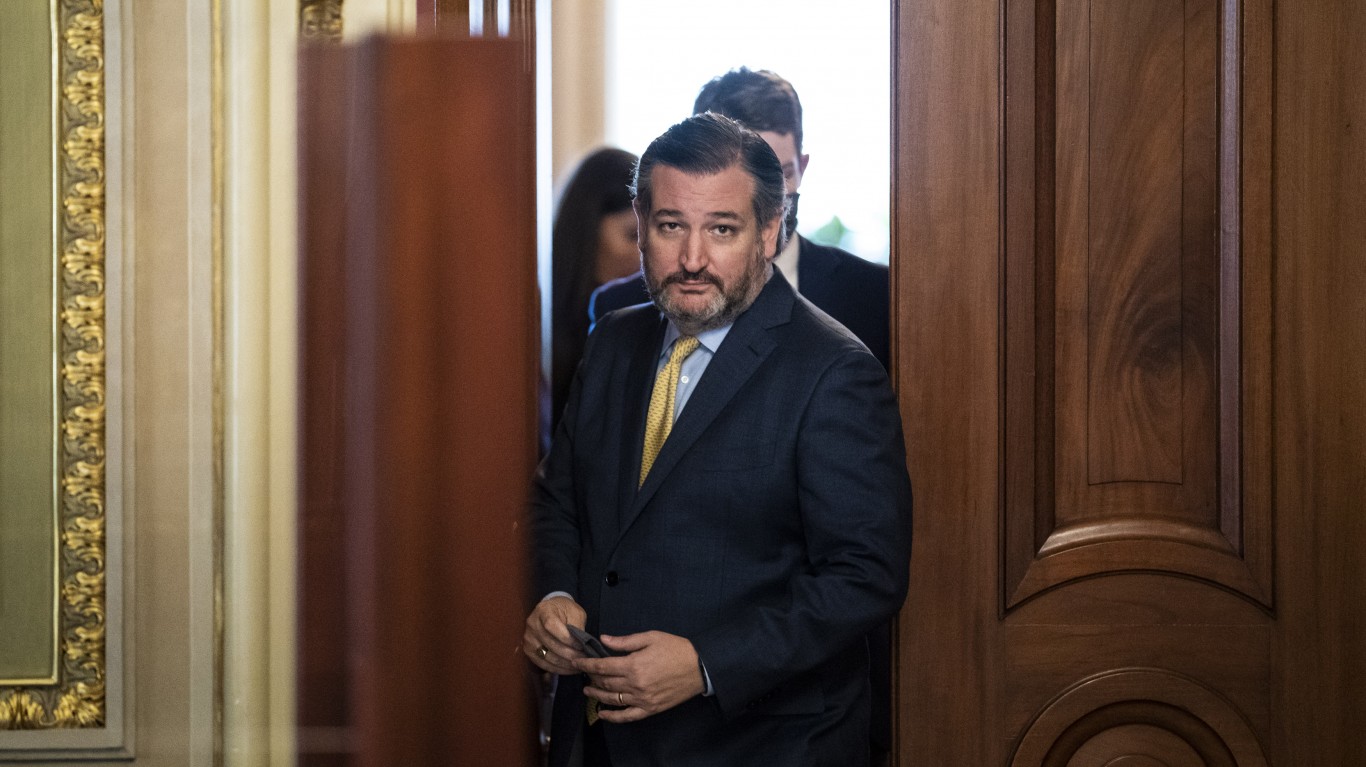
Assumed office: 2013
Bipartisan ranking: 89
Ted Cruz was elected to the Senate in 2012 by a large margin but his re-election campaign in 2018 was much closer. In a state that hasn’t voted to send a Democrat to the Senate since 1988, Cruz eked out an uncomfortably tight victory over Beto O’Rourke. Cruz is one of the most ideologically right-wing members of Congress. It’s hardly surprising Democrats in the Lone Star state don’t much care for his antics. However, he’s not awfully popular among prominent Republicans either. George W. Bush, Lindsey Graham, John Boehner, and the late John McCain have all spoken publicly of their dislike of Cruz.
Cruz was instrumental in the 16-day government shutdown alongside Mike Lee in 2013. Cruz wears his partisanship and lack of friends on the hill as a badge of honor but it could be an electoral liability. His Senate colleague, John Cornyn, is one of the most bipartisan Republicans in the Senate and won his re-election fight easily. Ted Cruz faces a more competitive race in November. His opponent, Colin Allred, frequently attacks Cruz’s lack of bipartisanship on the campaign trail. Cruz has a slight lead in the polls but a high turnout could be his undoing.
7 – Josh Hawley (Missouri)
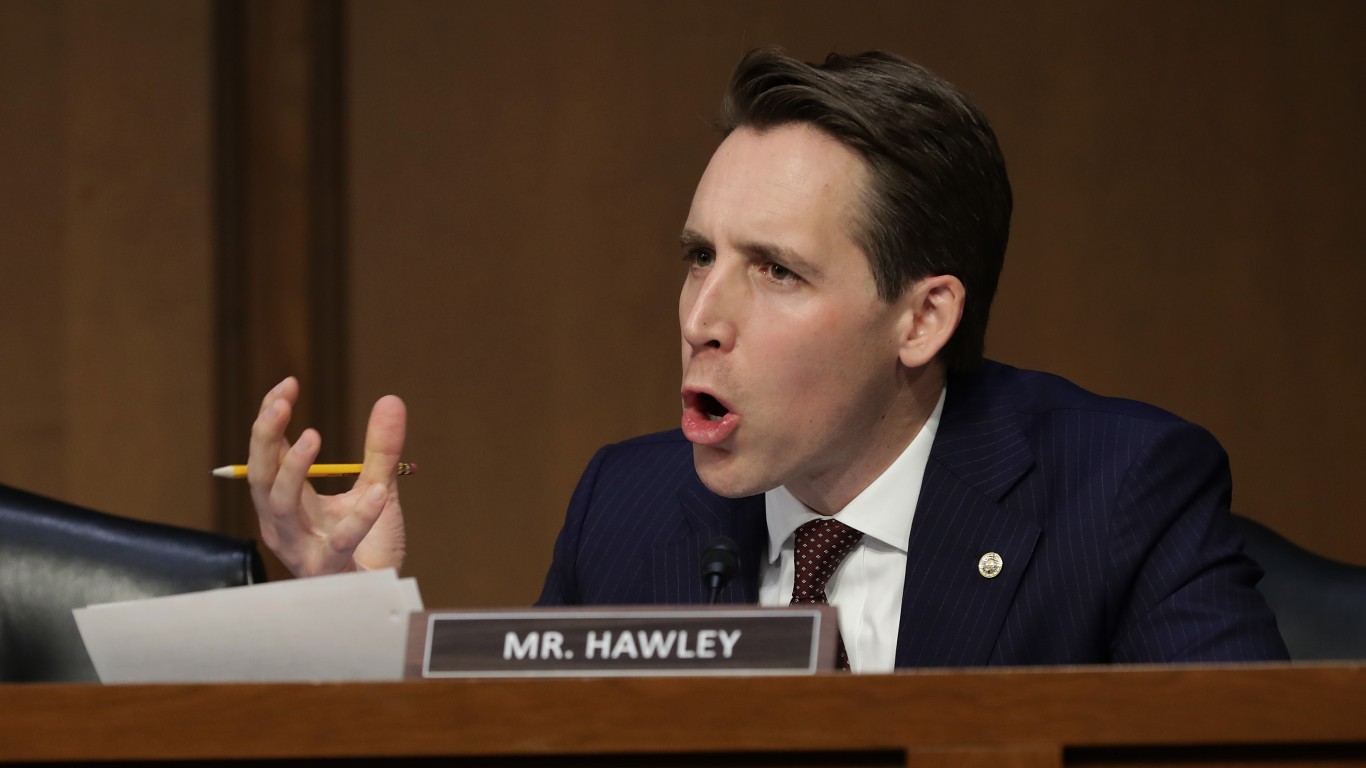
Assumed office: 2019
Bipartisan ranking: 90
Josh Hawley defeated two-term incumbent Claire McCaskill in 2018 to flip the Senate seat to the Republicans. Hawley is one of the youngest members of the Senate and one of its most right-wing. He’s shown little interest in crafting bipartisan legislation though he did work alongside his polar opposite Bernie Sanders in late 2020.
On foreign, one of the few areas still ripe for bipartisan consensus, Hawley was the sole nay vote for Sweden and Finland’s ascension to NATO. He also opposes aid to Ukraine and wants the United States to concentrate more on China.
He is widely expected to win re-election in November.
6 – Mike Lee (Utah)

Assumed office: 2011
Bipartisan ranking: 92
Mike Lee was part of the Tea Party movement that helped the Republican Party make huge gains in 2010. He defeated popular three-term incumbent Bob Bennett in Utah’s 2010 primary elections and won the general election in a landslide. He easily won re-election in 2016 and decisively defeated an independent challenger in 2022 but with a significantly reduced majority.
Lee was a leading voice during the 2013 government shutdown, an episode that divided Senate Republicans. Mike Lee is on the Senate Judiciary Committee. In 2016, he joined Republicans to block Merrick Garland’s nomination to the Supreme Court, arguing a justice cannot be chosen in an election year. Four years later and six weeks before the 2020 election, Lee backed a quick vote to confirm Amy Coney Barrett to the Supreme Court.
Lee’s strong conservative voting record and comfort with partisan fights suggest he won’t be reaching across the aisle any time soon.
5 – Tommy Tuberville (Alabama)
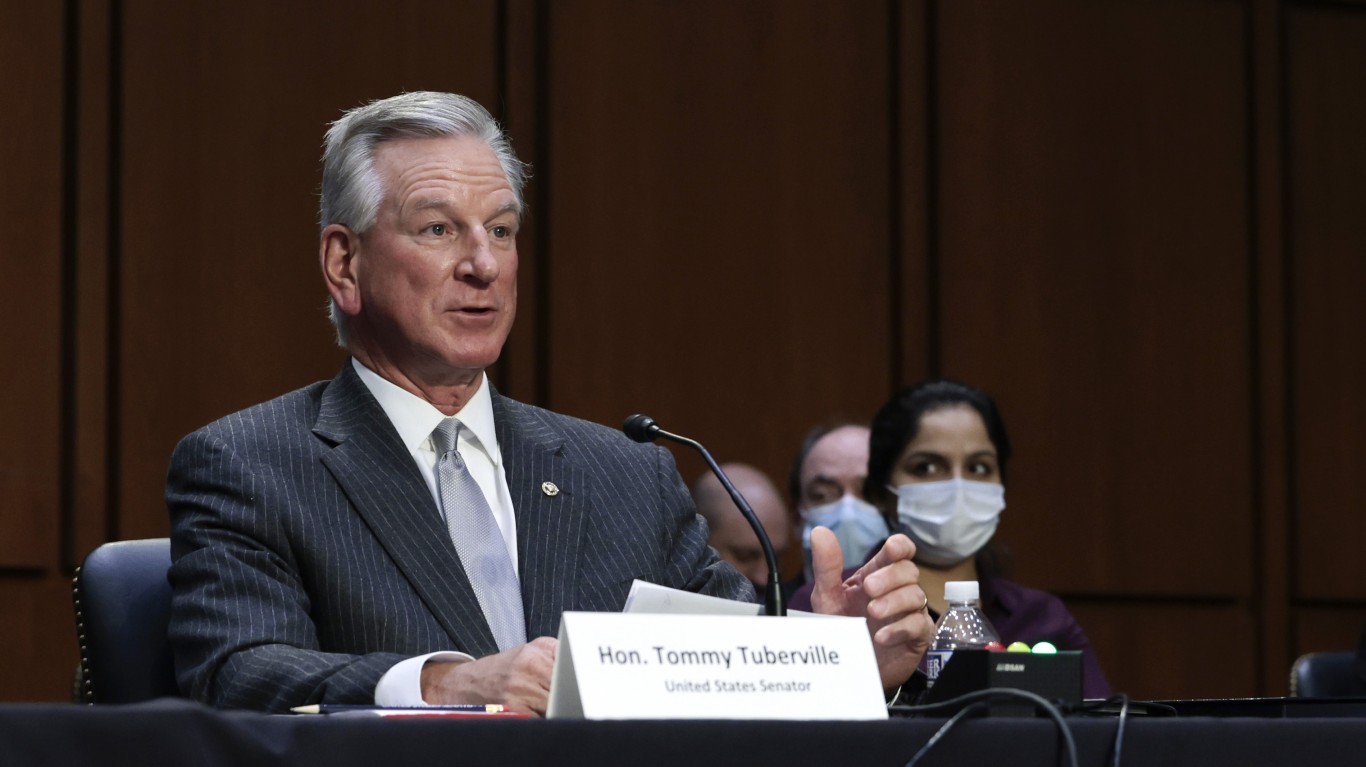
Assumed office: 2021
Bipartisan ranking: 93
A former college football coach, Tommy Tuberville trounced Democratic incumbent Doug Jones in 2020. Tommy Tuberville’s series of controversial public statements caused his brother to publicly distance himself from the senator. Tuberville is best known for his staunch pro-life views and for engaging in a 10-month-long blockade of military promotions. Typically, these are uncontroversial pieces of business that sail through with no objections. Tuberville held up over 400 promotions and faced intense criticism from Democrats and Republicans alike.
4 – Tom Cotton (Arkansas)
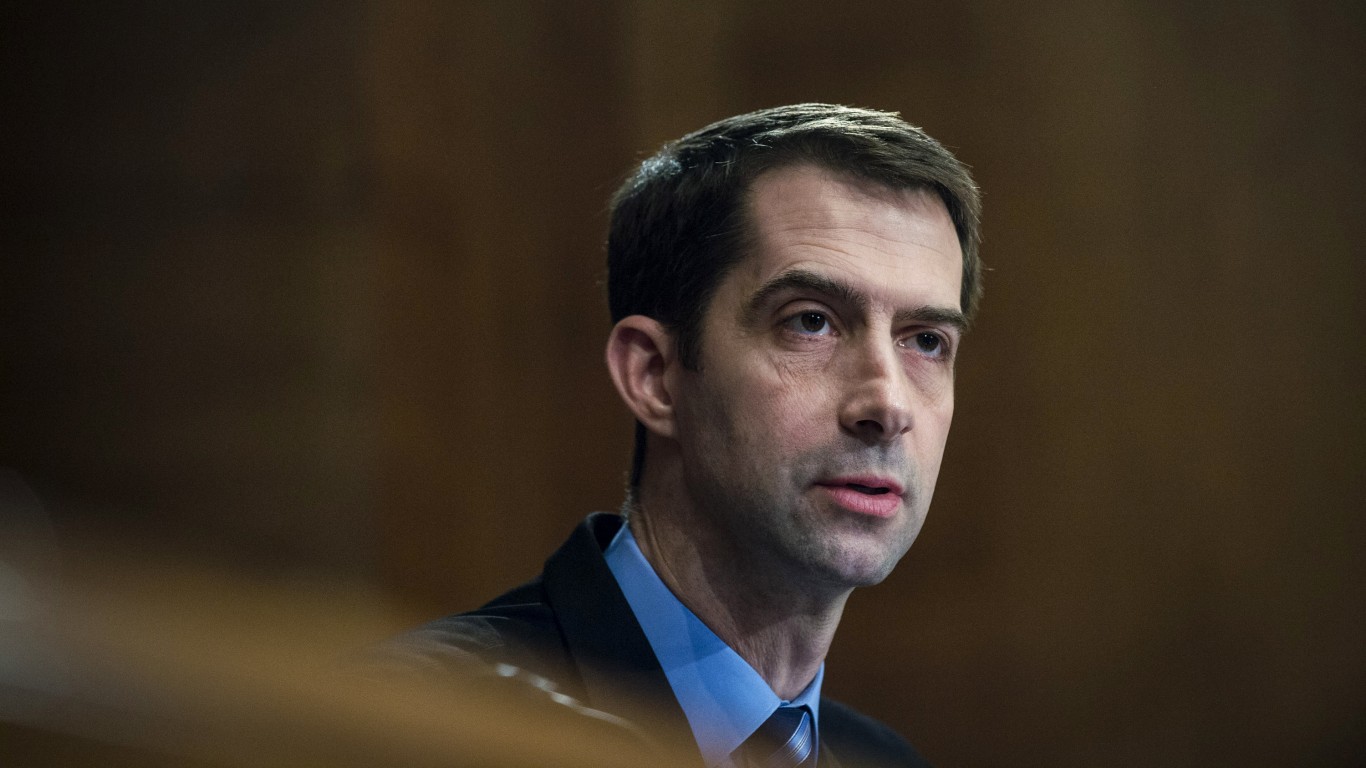
Assumed office: 2015
Bipartisan ranking: 94
Tom Cotton unseated a two-term Democratic incumbent in 2014 by a hefty margin and easily swept aside a challenge from a Libertarian candidate in 2020. At 37, he was the youngest member of the Senate when first elected and still one of the youngest today. Cotton rarely joins bipartisan legislation and has occasionally spoken out against his party’s bills. He was one of a handful of Republican senators to oppose the First Step Act of 2018, a criminal justice reform bill he argued was too lenient.
Cotton gained attention during a tense hearing with Tik Tok’s CEO, Shou Zi Chew, by repeatedly asking the Singaporean if he was a member of the Chinese Communist Party. Cotton is one of the most outspoken critics of China in Congress. In 2021, he authored a detailed report titled “Beat China: Target Decoupling and the Economic Long War” an 84-page breakdown of how the USA should navigate future relations with Beijing.
3 – Ron Johnson (Wisconsin)
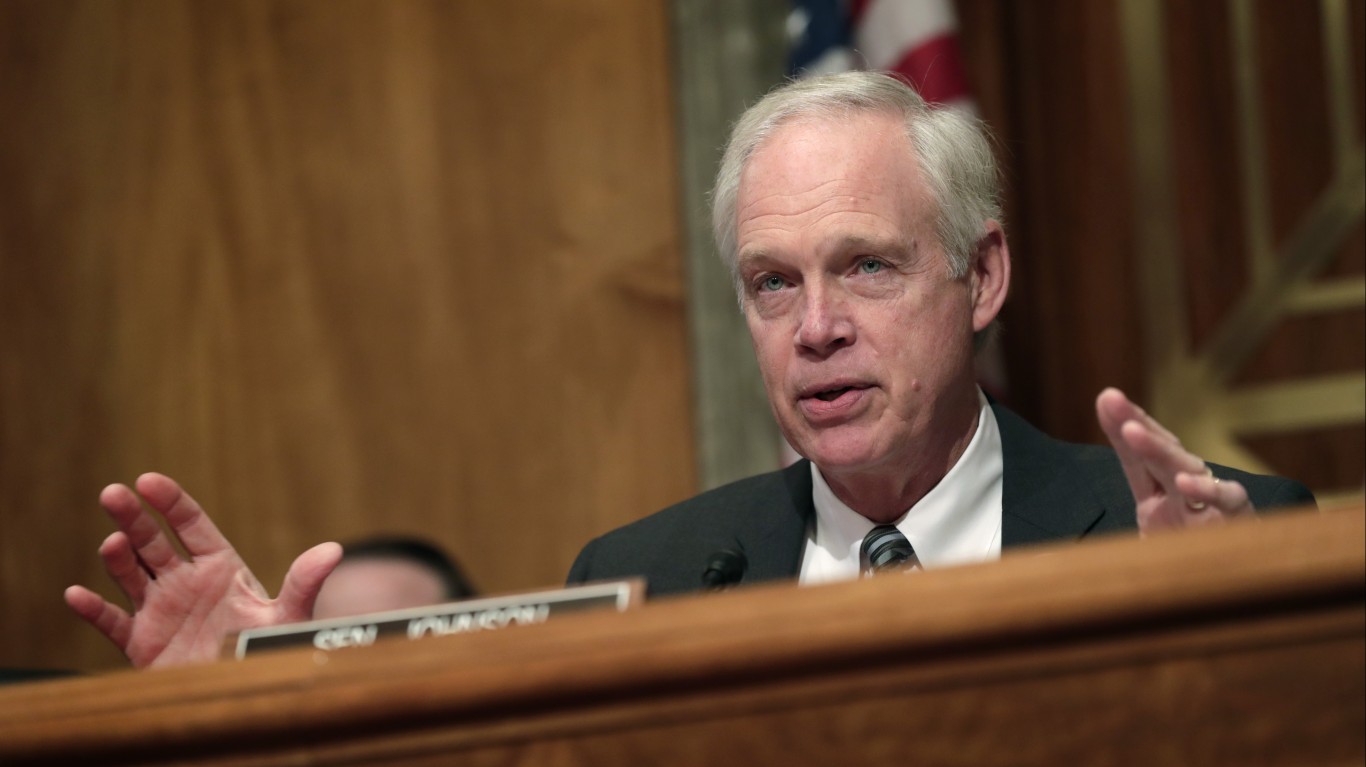
Assumed office: 2011
Bipartisan ranking: 95
Ron Johnson defeated Ross Feingold, a three-term incumbent, in a competitive race in 2010 and again in 2016. He won a third term in an extremely close race in 2022, reversing an earlier pledge to serve two terms. Johnson is one of the less active members of the Senate for legislating and of the bills he does put forward, few attract bipartisan co-sponsors. He voted against the bipartisan infrastructure bill, against Kentanji Brown Jackson’s nomination to the Supreme Court, and bipartisan gun safety laws.
As a senator in a swing state, he cannot stray too far to the right on abortion. He supports a 14-week ban, noting 85% of procedures occur in the first 13 weeks. He also gained bipartisan support for the Right to Try bill, a law that allows terminally ill patients to seek experimental treatments. Wisconsin is one of only five states with split delegations in the Senate and that number will dwindle even further in 2024. Johnson’s Senate colleague Democrat Tammy Baldwin is the most likely to hold on. Johnson won’t have to consider his political future for a while but winning a fourth term will be a tall order. However, his track record of winning tight races means it would be unwise to bet against him doing just that.
2 – Eric Schmitt (Missouri)

Assumed office: 2023
Bipartisan ranking: 97
A former Attorney General of Missouri, Eric Schmitt won the election for Missouri’s open Senate seat in 2022. He campaigned on his loyalty to Donald Trump and his record as Attorney General. He sued the Biden administration 25 times in less than two years. After his election victory, he’s shown no desire to reach across the aisle. He’s not authored any major bills or co-sponsored bipartisan legislation. He holds A+ ratings with the anti-abortion organization Susan B. Anthony Pro-Life America and the National Rifle Association.
1 – Katie Britt (Alabama)

Assumed office: 2023
Bipartisan ranking: 98
Katie Britt decisively won the race to replace the outgoing six-term incumbent Richard Shelby in 2022. She defeated former representative Mo Brooks in the primary and swept the general with over 60% of the vote. A self-described Christian conservative, like most of the members featured here, Britt holds an A+ rating with anti-abortion and pro-gun groups and was endorsed by Donald Trump. She came to national attention with her televised response to Joe Biden’s 2024 State of the Union which had a polarizing reception.
Though she currently ranks at the bottom for bipartisanship, she formed close friendships with Democrat freshmen senators John Fetterman and Peter Welch. Perhaps fittingly, Fetterman and Welch both rank near the bottom for bipartisanship among Democrats.
Conclusion

Unsurprisingly, most of the senators profiled here represent states in or associated with the bible belt. Like New England and West Coast Democrats, reaching across the aisle wouldn’t go down well. Both of Missouri’s senators are found in the top ten, and Alabama’s in the top five. However, in Ted Cruz’s case, there does appear to be limits on how much partisanship voters can stomach. Though he will most likely win a third term, it will be another competitive race while his more bipartisan colleague easily wins re-election. Similarly, Ron Johnson’s overt partisanship in a swing state has meant a close race each time he’s run for re-election.
Most of the senators featured here are relative newcomers in a chamber dominated by long-term incumbents. It is possible that a few will tone down the partisanship over time but equally, the ever-present threat of a primary may limit cross-party cooperation.
The Republicans stand a good chance of regaining the Senate in November though their prospects in the House of Representatives are less rosy. In all probability, the 119th Congress will have another divided legislature that will require cross-party cooperation to get things done. With several bipartisan Democrats (and independents who caucus with them) likely to depart the Senate this cycle, the next Congress will be more partisan. There may be soon scope for deals in foreign policy but domestic priorities are going to be an uphill battle for whoever takes the presidency this November.
Travel Cards Are Getting Too Good To Ignore (sponsored)
Credit card companies are pulling out all the stops, with the issuers are offering insane travel rewards and perks.
We’re talking huge sign-up bonuses, points on every purchase, and benefits like lounge access, travel credits, and free hotel nights. For travelers, these rewards can add up to thousands of dollars in flights, upgrades, and luxury experiences every year.
It’s like getting paid to travel — and it’s available to qualified borrowers who know where to look.
We’ve rounded up some of the best travel credit cards on the market. Click here to see the list. Don’t miss these offers — they won’t be this good forever.
Thank you for reading! Have some feedback for us?
Contact the 24/7 Wall St. editorial team.
